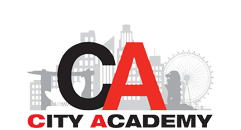The aim of this paper is to develop candidates’ understanding of the critical aspects of managing an assurance engagement (including audit engagement): accepting, planning, managing, concluding and reporting.

Overview:
The aim of this paper is to develop candidates’ understanding of the critical aspects of managing an assurance engagement (including audit engagement): accepting, planning, managing, concluding and reporting.
On completion of the Audit and Assurance module, students will be able to:
Understand and advise on the regulatory, professional and ethical issues relevant to those carrying out an assurance engagement
Understand the process involved in accepting and managing assurance
Understand how quality assurance processes mitigate risks
Plan assurance engagements in accordance with the terms of the engagements and appropriate standards
Conclude and report on assurance engagements in accordance with the terms of the engagements and appropriate standards.
There are short-form and long-form questions to answer. Audit risks and procedures are usually the subject of the big mark-earning question in the paper. Questions on ethical matters feature regularly in the exam as do questions on the audit report. Know “The Ethical Standard”. Know the Audit Report and audit opinion modification situations and the changes that have been introduced into the Audit Report.
You must be able to plan an audit and know what to do to collect sufficient and appropriate evidence. You will be concerned with materiality and subsequent events and going concern issues. You must know your Auditing Standards and familiarise yourself with the Open Book. Audit is not the only type of assurance. Consider also non-audit engagements (profit and cash flow forecasts) and be able to distinguish between the audit of profit and not-for-profit entities. You have a lot to do.
Course Objective and Approach:
The course is planned to prepare you for success in the Audit and Assurance exam. This is our key objective. We assume that you have done some preparatory work prior to the commencement of the course and that we can build on this through the duration of the course.
The course will consist of two phases – a lecture-based phase and a revision phase. Lectures will follow the content of BPP course notes and will include extensive practice on questions from the ICAEW Question Bank.
You will be set assignments at the end of each lecture session for submission at the start of the following lecture session. All assignments will be reviewed/assessed by the course tutor.
Two Progress Tests (PTs) will be set for completion during the teaching phase of the course and the Mock Exam (ME) will be set for completion before the revision phase of the course. All PTs and the ME will be marked by the course tutor. A second ME will be issued at the end of the revision phase for you to practise on before the actual exam.
The course is interactive and you will be encouraged to participate in class discussions.
“Completeness” is a key audit assertion. To meet the key course objective of exam success you need to be complete in your exam preparation. The course is aimed at exposure/coverage to/of most exam matters. You will be expected to attend all lectures and any supplementary tutorials, complete all course assignments and sit for and return all PT and ME answers.
Through face-to-face classes, City Academy helped our students achieve high pass rates for the advanced level papers in Strategic Business Management and Corporate Reporting and enabled Ms Lim Jia En to achieve a high score of 96% in Audit Assurance exam.
© 2025 coursetakers.com All Rights Reserved. Terms and Conditions of use | Privacy Policy